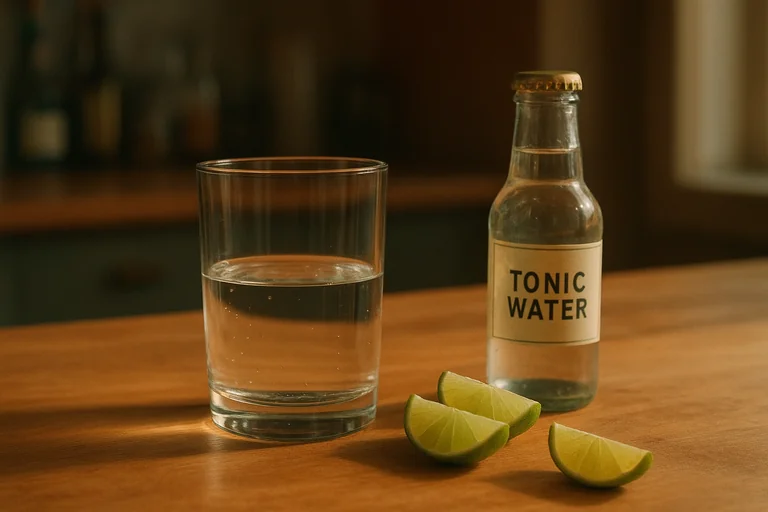A 2 minute assessment to get a personalized mental health or alcohol recovery plan.
Recovery coaches use lived experience to provide non-clinical support that fills the gaps between therapy sessions and medical visits - here's how to know if you need one and how to choose wisely.
What You'll Discover:
- What a recovery coach actually does and what's outside their scope.
- How coaches differ from therapists, doctors, and AA sponsors.
- What the research says about recovery coaching effectiveness.
- When a recovery coach is appropriate and when you need clinical care instead.
- A 10-point checklist for hiring the right coach.
- A realistic first-month plan with a coach.
- Red flags that mean you should walk away.
Maybe your therapist suggested working with a recovery coach. Or perhaps you're leaving rehab and someone mentioned "peer support." You're not quite sure what that means or whether it's worth it. Is it just someone to talk to? Is it therapy? Do they replace your doctor?
Here's the truth: Recovery coaches (also called peer recovery support specialists) are trained helpers with lived experience who provide non-clinical support - think accountability, problem-solving, help getting to appointments, and hope grounded in real experience. They're not therapists and they're not doctors, but they fill a crucial gap.
Let's break down exactly what they do, when they help, and how to choose one who's actually qualified.
What a Recovery Coach Actually Does
The Core Role
Recovery coaches use their lived experience in recovery to engage, motivate, and support people who are starting or sustaining their own recovery journey. According to SAMHSA, they extend help outside traditional clinical settings - text check-ins, rides to appointments, navigating housing and benefits, relapse-prevention planning.
They've been where you are. They understand the struggle in a way that textbook knowledge can't capture. That lived experience is their superpower.
What Makes Them Different From Therapy
Coaches are non-clinical - they don't diagnose conditions, deliver psychotherapy, or prescribe medications. They collaborate with your clinicians and community supports but operate in a different lane. As NCBI explains, their role is to support, not treat.
Core Values and Boundaries
Peer services are voluntary, person-directed, and emphasize mutuality. The work centers entirely on your goals and choices, not what someone thinks you "should" do. These principles are laid out in detail in the Peer Recovery Coaching Standards for Professional Practice.
Certification, Training, and Ethics: What "Qualified" Looks Like
Not everyone who says they're a "recovery coach" is qualified. Here's what to look for:
Credentials Matter
Many jurisdictions use the IC&RC Peer Recovery (PR) credential and exam. Local boards set requirements for training hours, supervision, and continuing education. You can verify credentials through IC&RC member boards.
Without proper training and credentials, you're essentially paying for a well-meaning friend - which might be nice, but it's not professional support.
Ethics Standards
Certified peers commit to codes covering confidentiality, boundaries, non-exploitation, cultural humility, and mandatory reporting requirements. A widely referenced standard is the NAADAC/NCC AP Code of Ethics, which includes peer-specific supplements.
These aren't optional - they're the foundation of trustworthy practice.
How a Coach Compares to Other Helpers
It helps to see the different roles side by side:
Recovery Coach / Peer Specialist
- Core focus: Motivation, linkage to services, accountability, skill-building via lived experience
- Medical or therapy? No diagnosis, therapy, or prescribing
- Typical touchpoints: Frequent texts and calls, accompaniment to care, goal tracking
Therapist (CBT, Motivational Interviewing, etc.)
- Core focus: Treating mental health or substance use disorder with evidence-based psychotherapy
- Medical or therapy? Yes, clinical treatment
- Typical touchpoints: Weekly sessions, formal treatment plans
Physician / Nurse Practitioner / PA
- Core focus: Diagnoses, medications like naltrexone, medical safety for withdrawal
- Medical or therapy? Yes, medical care
- Typical touchpoints: Medical visits, labs, prescriptions
Mutual-Help Sponsor (AA/NA, etc.)
- Core focus: Program-specific guidance and fellowship
- Medical or therapy? Non-clinical, volunteer
- Typical touchpoints: Meetings plus sponsorship work
The key insight: Use more than one. According to research published in NCBI, teams outperform solo approaches. Your recovery coach works alongside your therapist and doctor, not instead of them.
What the Research Actually Says
Let's look at the evidence:
Engagement and Linkage to Services
Peer support reliably helps people engage and stay connected to treatment services. Studies in emergency departments and community settings report high satisfaction and better linkage to ongoing care for many programs, according to research in ScienceDirect.
Substance Use Outcomes
Recent systematic reviews of peer recovery support and recovery coaching find benefits on some outcomes - including reduced substance use, improved housing stability, and better criminal justice outcomes. However, there's heterogeneity across studies. The evidence quality is improving but still mixed.
Head-to-Head in Emergency Departments
A 2022 randomized controlled trial published in JAMA Network Open studied 648 patients and found no difference in 30-day treatment engagement when a peer-led intervention was compared with a licensed clinical social worker intervention. This suggests peers perform about as well as standard ED behavioral care for that outcome.
The Bottom Line
Coaching is not a replacement for medical care or therapy, but it's a powerful add-on for motivation, access, and day-to-day follow-through, according to SAMHSA.
When a Recovery Coach Is (and Isn't) Appropriate
A Recovery Coach Is a Good Fit If:
- You want accountability and practical help with transportation, navigating benefits, or keeping appointments
- You're starting or adjusting medication for alcohol or opioid use disorder and want real-life support between medical visits
- You're leaving detox, rehab, jail, or the emergency department and need a warm handoff into ongoing care
- You feel isolated and would benefit from connection with someone who's been through it
A Recovery Coach Is Not the Right Fit If:
- You're experiencing severe withdrawal, medical instability, psychosis, or suicidality - you need clinical care first (coaching can join after stabilization)
- You need diagnosis or therapy for mental health conditions
- You're looking for someone to prescribe medications
Be honest about where you are. The wrong level of care at the wrong time can be dangerous.
How to Hire the Right Recovery Coach: A 10-Point Checklist
Don't hire the first person who offers. Use this checklist:
1. Credential Check
Ask for their state credential (e.g., IC&RC Peer Recovery) and current standing. Verify with your state member board.
2. Supervision
Ask: "Who supervises you, and how often?" Look for structured clinical or peer supervision. Isolated practitioners without oversight are a red flag.
3. Ethics
Ask: "Which code of ethics do you follow?" Look for NAADAC/NCC AP or an equivalent standard.
4. Scope Clarity
The coach should explicitly state they don't diagnose or provide therapy and will coordinate with your clinicians, per NCBI guidelines.
5. Lived-Experience Match
Ask about relevant experience. If you're dealing with alcohol, a coach whose experience is primarily with opioids might not be the best fit. Ask about their recovery path and what they've struggled with.
6. Availability
What are their response times? After-hours boundaries? Coverage during leave? Make sure their availability matches your needs.
7. Data and Privacy
How are notes stored? What consent processes are in place? What are the information-sharing rules with your other providers?
8. Warm Handoffs
Can they escort or connect you to medication for opioid or alcohol use disorder, therapy, housing, or employment services? A coach's value is often in these linkages to services.
9. Outcome Tracking
What will you measure weekly? Look for concrete targets like heavy-drinking days, craving intensity, or appointment completion rates.
10. Cost and Access
Ask about insurance contracts or grant-funded programs. Many hospital and community programs provide peers at no cost to you.
A First Month With a Coach: What to Expect
Here's a realistic timeline:
Week 1: Onboarding and Safety
Map your goals - what matters to you in 30 and 90 days? Pick 2 to 3 behavior targets, like "zero binge nights," "attend 3 meetings per week," or "take naltrexone daily."
Build a risk plan: What are your withdrawal red flags? Who are your emergency contacts? Where's the nearest ER?
Handle logistics: Book appointments with your primary care doctor, addiction medicine specialist, or therapist. Set up transportation. Start daily text check-ins.
Week 2: Skills and Linkage
If you're moderating or abstaining, practice scripts for social events and learn urge surfing techniques. Make your home environment safer by removing alcohol and triggers.
Complete warm handoffs to therapy groups, medication providers, housing services, or employment support.
Start a simple tracker: rate cravings on a 0 to 10 scale, log heavy-use days, count meetings attended.
Week 3: Troubleshoot and Strengthen
Review barriers that came up - sleep problems, stress, specific cues. Adjust routines. Add mutual-help groups or alternative supports as desired.
Introduce a relapse-prevention plan: identify triggers, create if-then action plans, establish support call protocols.
Week 4: Consolidate and Measure
Compare your 4-week data to baseline. Did heavy-use days decrease? Did appointment attendance increase? What's working and what isn't?
Set 60 to 90-day targets. Confirm medical follow-ups are scheduled. Adjust contact frequency based on what you actually need.
Working Together: Expectations That Make Coaching Effective
Frequency
Typically 1 to 2 live contacts per week plus brief texts between sessions, according to SAMHSA research.
Mode
In-person, telehealth, or hybrid. Many programs offer accompaniment to key appointments, which is often when coaches add the most value.
Documentation
Expect short progress notes centered on your goals, not diagnoses. These aren't clinical charts.
Team Approach
Give your coach permission (via signed consent) to coordinate with your prescriber and therapist. Everyone works better when they're on the same page.
Red Flags and Deal-Breakers
Walk away if you encounter any of these:
Providing Medical Advice
If they're promising medical guidance, therapy techniques, or "detox at home" without clinical oversight, that's a major red flag and potentially dangerous.
Boundary Violations
Violating confidentiality, romantic or financial entanglement, or other boundary crossings are grounds to immediately stop working together and report to the credentialing board, per NAADAC ethics standards.
Discouraging Evidence-Based Treatment
If they discourage medications for opioid use disorder, medications for alcohol use disorder like naltrexone, or other science-based care, that's a deal-breaker. Coaching should add to evidence-based treatment, not replace it, per NCBI guidelines.
Pushing a Specific Path
While coaches often share what worked for them, they shouldn't insist you follow their exact path. Your recovery is yours to define.
Where to Find a Recovery Coach
Hospital, ED, and Community Programs
Many hospitals and emergency departments now embed certified peers for warm handoffs into ongoing care. Ask your hospital's addiction services department or local health department, as noted in ScienceDirect research.
State Credentialing Boards
IC&RC member boards list certified peers and training programs by state.
Recovery Community Centers
Mutual-help-adjacent organizations and recovery community centers may host peer programs. Always confirm credentials, supervision, and ethics standards before engaging, per professional practice standards.
Recovery Coach Versus Therapist Differences
Therapists are clinically trained to diagnose and treat mental health and substance use disorders using evidence-based psychotherapy. Coaches have lived experience and training to provide non-clinical support, accountability, and linkage to services. You might benefit from both.
Coordinating Medical Care with Coaching
Absolutely. Your coach doesn't prescribe medications, manage withdrawal, or handle medical complications. They complement your medical care, they don't replace it.
Typical Duration of Recovery Coaching
It varies widely. Some people work intensively with a coach for the first few months and then reduce frequency. Others maintain ongoing but less frequent contact for a year or more. It depends on your needs and what's working.
Insurance Coverage for Recovery Coaching
Increasingly, yes. Many states now have Medicaid coverage for certified peer support services. Ask your coach about insurance contracts or grant-funded programs that may provide services at no cost to you.
Addressing Concerns About Your Coach
Be direct about it. A good coach will troubleshoot with you and, if needed, help connect you with a different coach or additional supports. You're not obligated to stick with someone who isn't meeting your needs.
Taking the Next Step
A good recovery coach can be the difference between feeling alone in your recovery and having someone in your corner who truly gets it. But only if they're properly trained, credentialed, and operating within appropriate boundaries.
Ready to explore your options and understand what level of support you need? Get a private alcohol risk assessment with clear next steps including self-guided strategies, clinician options, and medication-assisted treatment information.
Start here: Take the Alcohol Use Assessment




